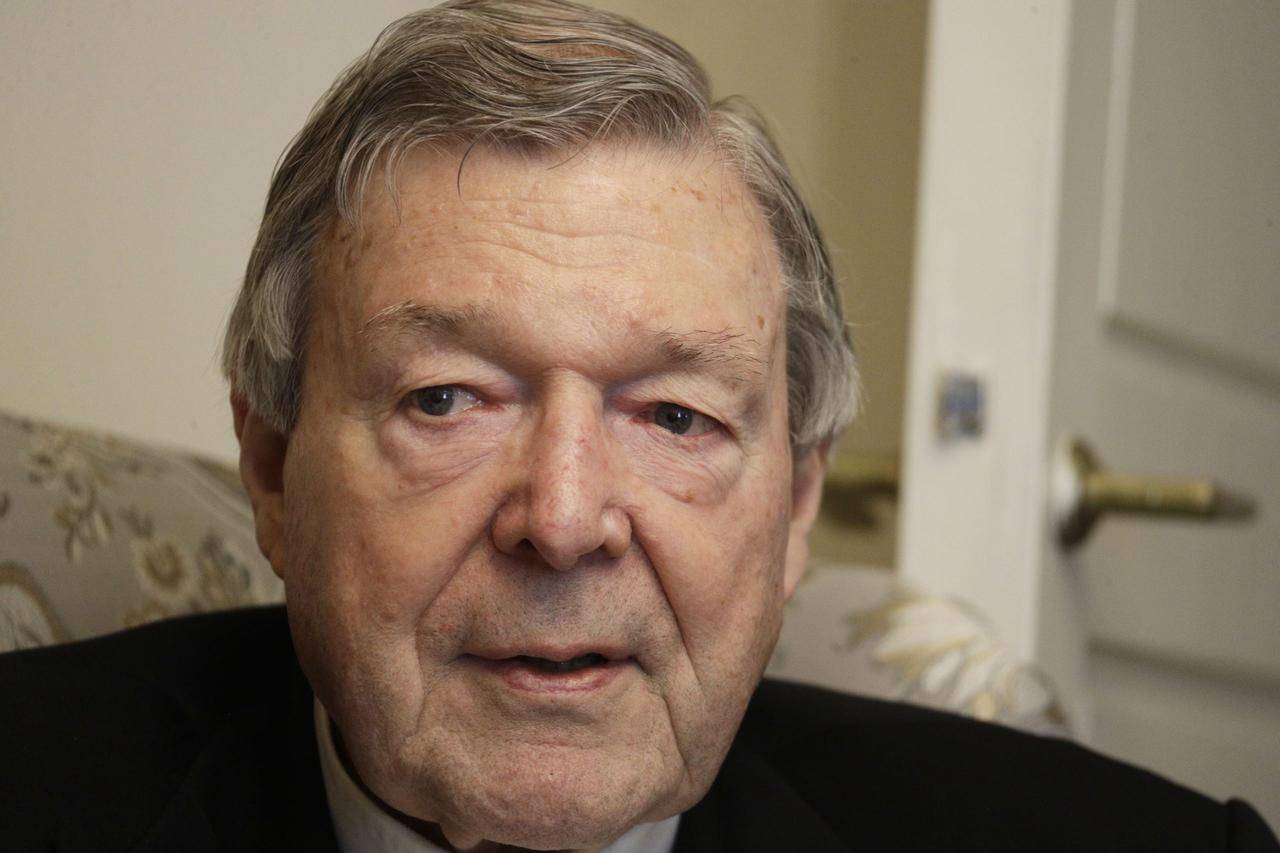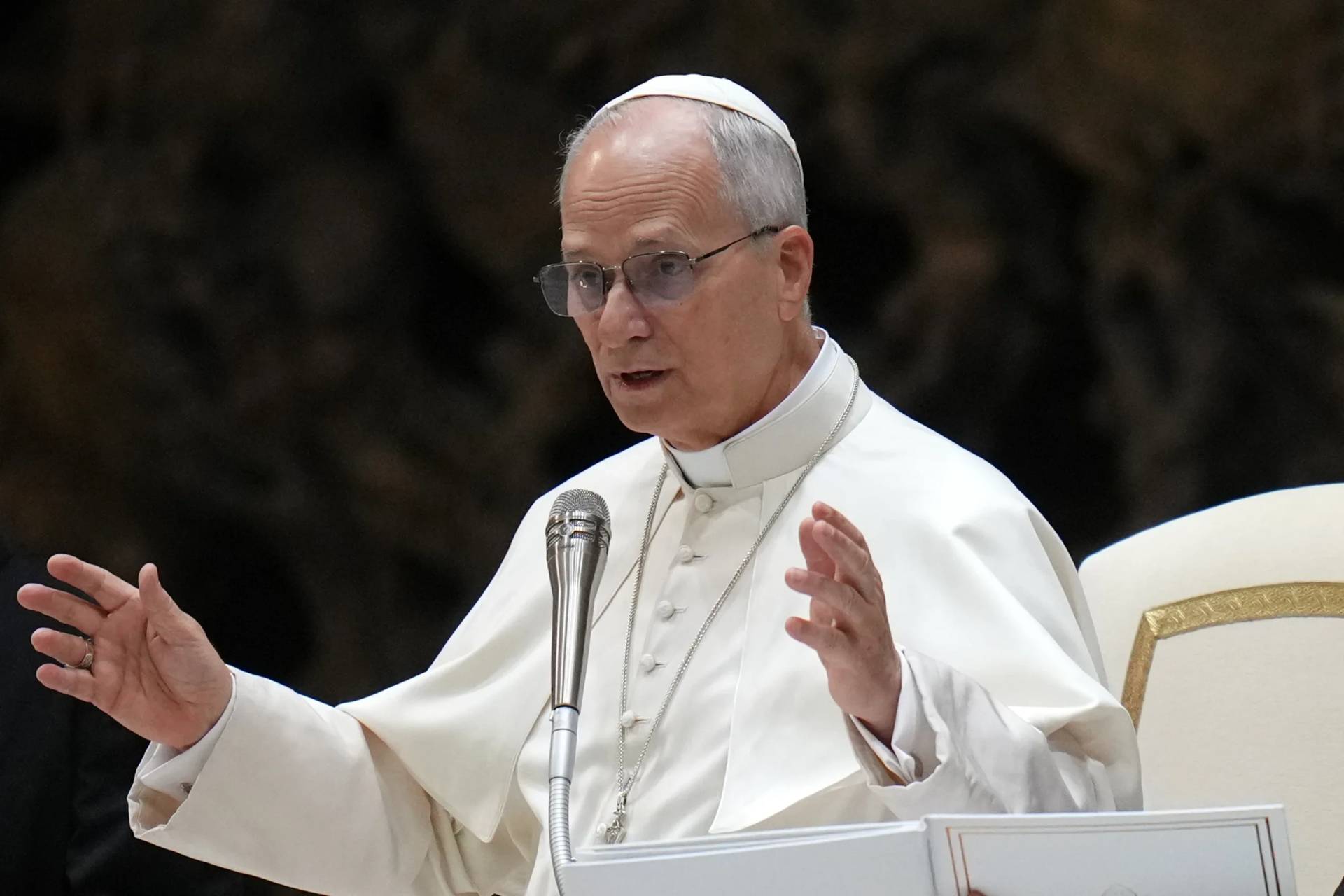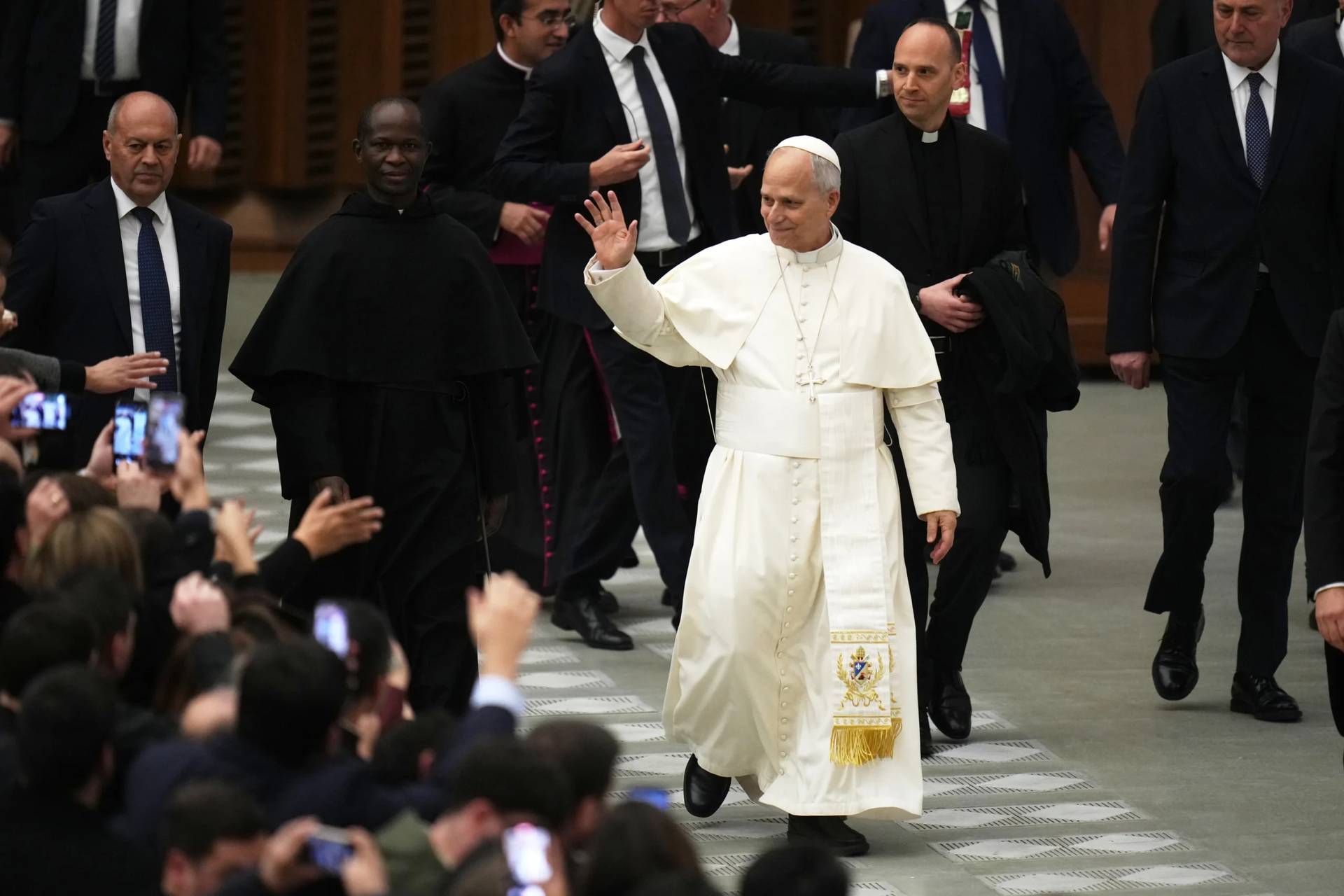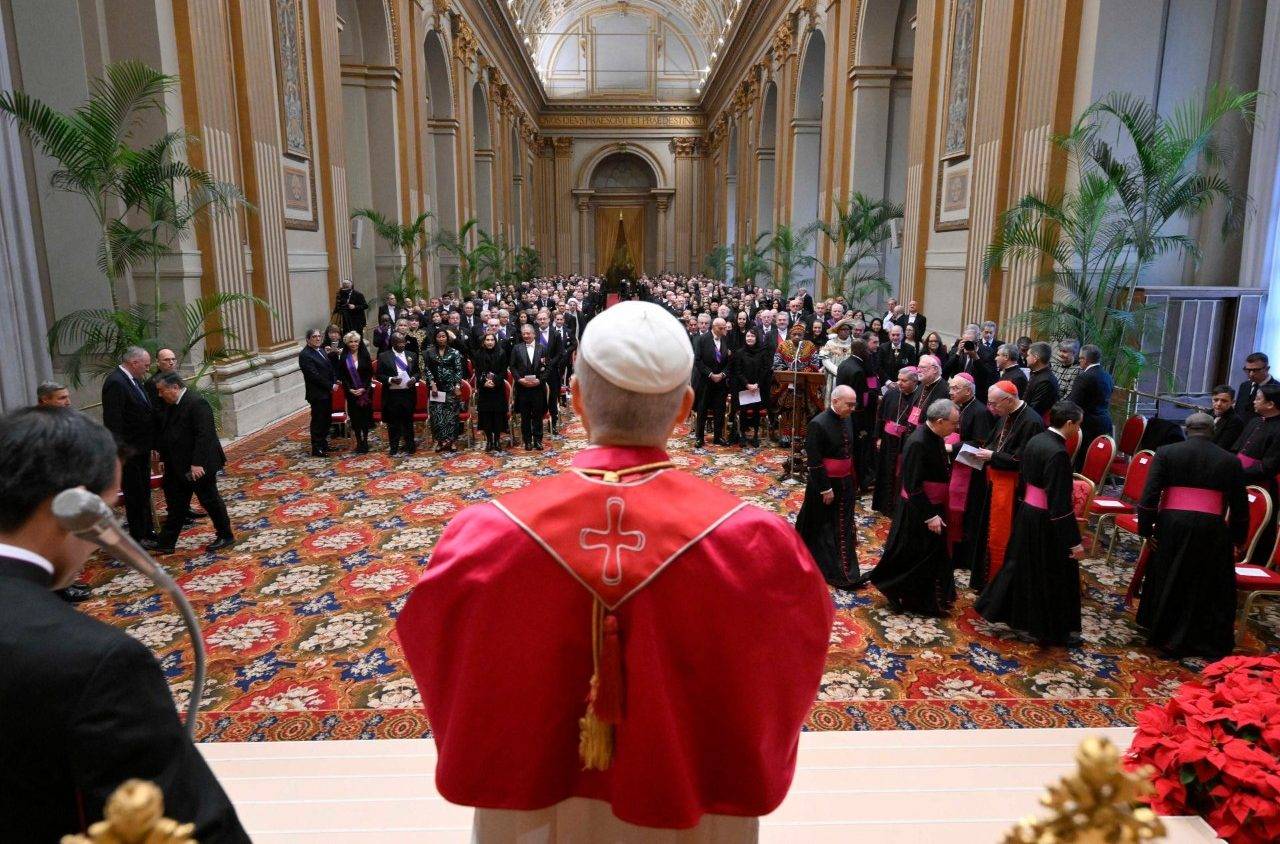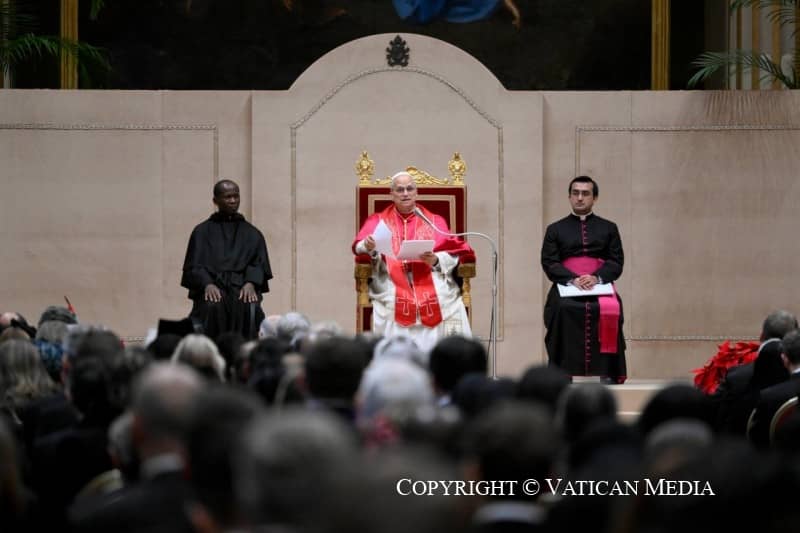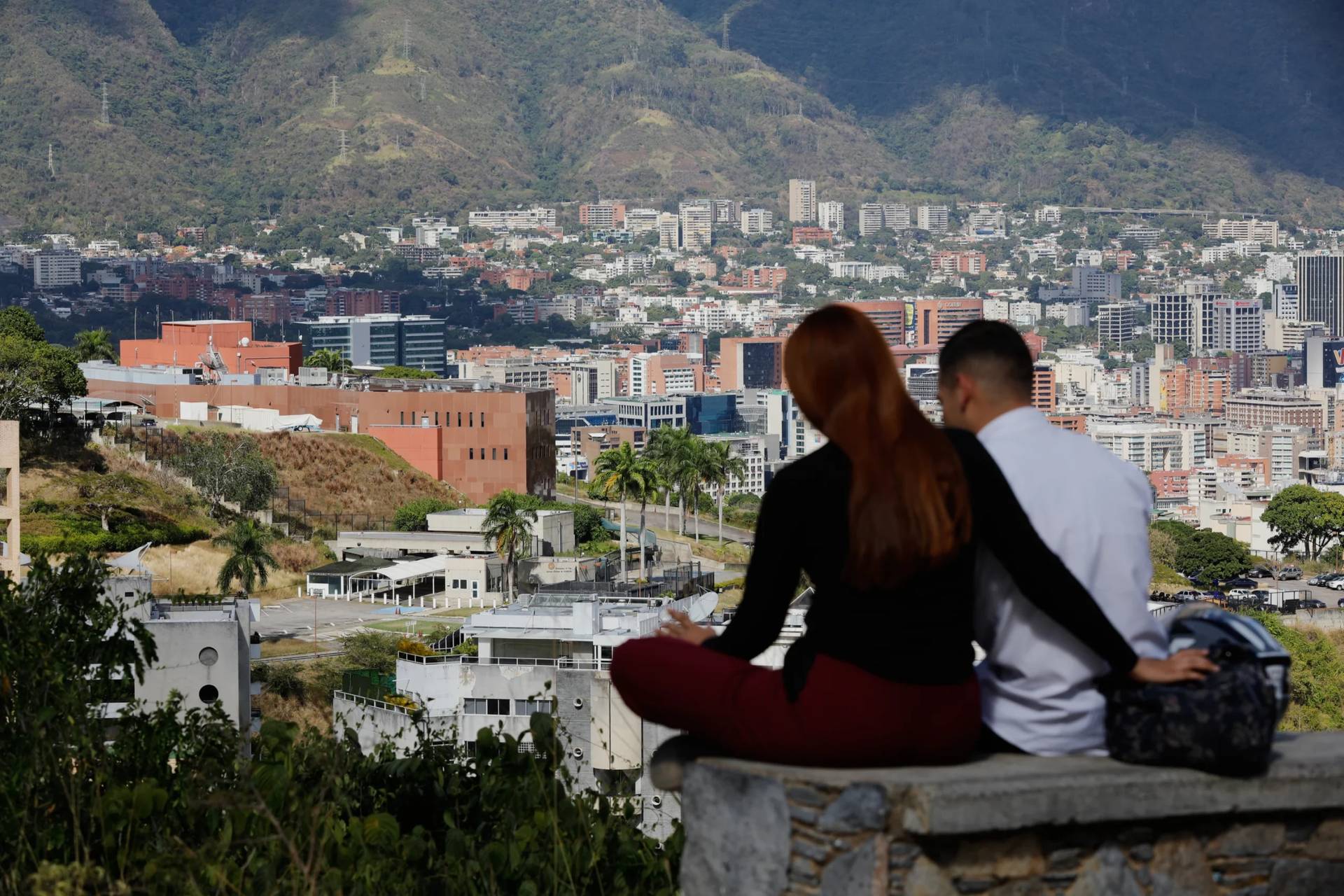ROME – In a sense, the most dramatic element of Rebecca Bitrus’s story is not the unimaginable horrors she suffered at the hands of the radical Islamic group Boko Haram during two years of captivity, including watching her three-year-old son die simply because she refused to become a Muslim, and then later becoming pregnant and giving birth to a child as the result of rape by a Boko Haram fighter.
Sadly, such experiences aren’t all that uncommon in Nigeria, where Boko Haram has killed tens of thousands and displaced an estimated 2.6 million people since its founding in 2002. Partly as a result of the violence, some 3.8 million people in the region are malnourished, and tens of thousands of children have died of hunger.
Instead, what sets Bitrus apart is her extraordinary ability to forgive – including overcoming her initial revulsion at the child who resulted from her rape, having him baptized and embracing him as her son.
“I’m convinced of Jesus’ teaching on forgiveness,” Bitrus told Crux Feb. 23.
“In the Scripture, it says that when Jesus was crucified on the cross, he was with two thieves. One asked that he be taken to Heaven with Jesus, who said, ‘You are forgiven. Today you will be with me in paradise,’” she said.
“I’m so convinced of that, which is why I was able to find a place in my heart to forgive them for all the pain, the torture, and the damage they did to me,” Bitrus said, speaking through an interpreter in her native Hausa, the tribal language widely used in northern Nigeria.
Bitrus, who’s basically illiterate, had the chance to tell her story to Pope Francis on Saturday when she met the pontiff in an audience along with Ashiq Masih and Eisham Ashiq, the husband and daughter of Asia Bibi, who’s been on death row in Pakistan since 2010 on a blasphemy charge.
The audience was organized by Aid to the Church in Need, a papal foundation supporting suffering Christians, to highlight a special event Saturday night in which Rome’s famed Colosseum was bathed in red light to raise awareness about anti-Christian persecution around the world.
While the struggle for religious freedom can seem a fairly abstract cause, Bitrus is a reminder that beneath the statistics and arguments are real, concrete people, some of whom bear the scars of experiences that almost defy belief.
It was a late August evening in 2014 when Boko Haram forces invaded the small town where Bitrus and her husband, Bitrus Zachariah, were living with their two children, Zachary who was five and Jonathan who was three.
“My husband alerted me they were coming and then ran for his dear life,” Bitrus said. She eventually would learn that her husband escaped, but she and her two children were taken by the Boko Haram militants and marched into their forest encampment.
“They wanted to force me to convert to Islam,” she recalled. “They told me, ‘You’re not going back to your brothers and sisters who are infidels. You’re going to stay here with us, this is a better place for you.’”
Bitrus, who was brought up as a strong Catholic, bluntly refused.
“One of the Boko Haram said, ‘You’re not ready to convert to Islam, so I’m going to teach you a lesson,’” she said. The fighter then snatched her three-year-old son and casually tossed him into a nearby river, where she was forced to watch him drown.
After that experience, undoubtedly fearing for her older son, Bitrus said she went through the motions of Islamic devotion, but inwardly she clung to her Christian faith.
“They would come on us with their guns and force us to pray. Each time I bent down to pray, I was reciting the ‘Hail Mary’ and the ‘Our Father,’” she said.
“I’m convinced that’s what saved me,” Bitrus said.
Later on, she said, she was told by her captors that she was to be “married” to one of the militants, and she was forced to act as his wife – in effect, suffering serial rape over a period of months. She eventually gave birth to a male child, who now has the name of Christopher.
After two years, Bitrus said, her chance for escape finally came when the sound of gunfire and bombs could be heard in the camp, indicating that Nigerian troops were closing in on the position. A group of prisoners organized an escape, and she fled into the forest with her older son and the child she had conceived in captivity, who at the time was about six months old.
Once they were safely away from the camp, she said, she didn’t want to take the new child with her, since he was a reminder of the brutality she had endured. She laid the child down on the forest floor, she said, and began to walk away.
It was her older son, she said, who changed her mind.
“Zachary told me, ‘Jonathan isn’t here anymore, I don’t have a little brother, so why don’t you take Christopher?’” she said.
Though they had escaped, Bitrus said, their hardships were hardly over. For 28 days they wandered through the unfamiliar forest, with no food or water, being attacked by mosquitos and facing the threat of disease, developing terrible rashes. She still bears the scarring left behind by those rashes on her legs and other parts of her body.
Despite it all, Bitrus said, “I never gave up.”
“As soon as I left the camp and we got away, I knew God was going to protect me,” she said. “I put my trust in God.”
Eventually, Bitrus said, they stumbled across a community which pointed them in the direction of nearby Nigerian troops.
“They were very skeptical of me and said, ‘You must be Boko Haram.’ I told them I wasn’t, that I was one of the women they abducted and now I’ve escaped.”
She told the soldiers her name was Rebecca – even that, she explained, was a small act of liberation, since her captors had forced her to take the name “Miriam.”
“One of the soldiers who was a Muslim told me, ‘If you’re a Catholic, prove it,’ and asked me to recite some Christian prayers. I prayed some ‘Hail Mary’s’ on my fingers, and when I came to the tenth one, I said the ‘Glory Be’ and made the Sign of the Cross,” she said. With that, the troops were convinced, and after having her treated in a nearby hospital, they transported her to her hometown of Maiduguri in northern Nigeria.
She made her way to the local Catholic Church, where she was reunited with her husband – with each having believed for two years that the other likely was dead.
Having finally made it home, she said, she was still struggling with what to do with the child she carried out of the camp.
“I wanted to give him to someone else who would take care of him, but the bishop helped me to accept him,” she said, referring to Bishop Oliver Dashe Doeme of Maiduguri.
“He told me, ‘Who knows who this child will become? He could be very special to you in the future,’” she said. “That helped me to have a positive attitude about everything I’d gone through.”
It was Father Innocent Zambua of Maiduguri who baptized Christopher, the same priest who accompanied Bitrus to Rome and acted as her interpreter.
Through all of her experiences, Bitrus said, one thing remained constant: Her firm, unwavering Catholic faith.
“After I got home and was back with my family, some people told me to stay a Muslim,” she said. “They told me, ‘You were practicing as a Muslim in the forest anyway, and Christians are being killed in Maiduguri. Why would you be a Christian? Do you want to be killed?’”
That, Bitrus said, was not an option.
“No matter what, I will never renounce my faith,” she said. “I’ll remain committed to it, even if it means giving up my life.”
Measured against the scale of anti-Christian persecution in the early 21st century, with an estimated 200 million Christians estimated to be at risk of harassment, arrest, torture and death, Rebecca Bitrus is no more than one drop in a vast sea.
After meeting Francis, however, the pontiff seemed to grasp that changing hearts about that sea of suffering begins with coming to know its individual drops.
“The witness of Rebecca and Asia Bibi are a model for a society that today has ever more fear of suffering,” the pope said, declaring that the two Christian women “are martyrs.”





